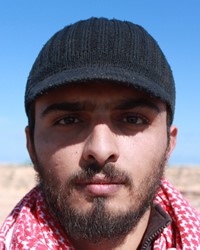In 1969, the Libyan government was overtaken by a young military officer, Muammar Gaddafi who became known for his oppressive and eccentric governing style. Gaddafi ruled Libya as an authoritarian dictator for over 40 years until he was overthrown in 2011 during the Arab Spring.
During Gaddafi's rule, oil was discovered in Libya which resulted in Libya becoming Africa's wealthiest country. Gaddafi put many socialistic benefits in place for the Libyan people, including free electricity, a portion of national oil sales deposited into the personal bank accounts of all Libyans, high government subsidies on basic commodities, and cash gifts for new parents, newlyweds, and entrepreneurs. However, over time the Libyan people started to resent his corruption, his disregard for human rights, and his firm handed oppression.
As the Arab Spring of 2011 surprised the world, Libya took center stage as the country began a revolt that turned into a bloody civil war which left thousands of Libyans dead and a nation divided following the death of Gaddafi. Libya as a whole has been very separated along ideological lines as well as tribal and regional loyalties. Since the end of the civil war there has been regular fighting throughout the country between various militias.
The country has yet to see a government that is able to impose effective law and order over the heavily armed population. As a result, there have been up to 2 million Libyans who've fled their home country and resided in Tunisia. Reports vary about how many are still living in Tunisia.
Libyans have relocated to several cities in Tunisia, including Djerba, Zarzis, Sousse, Sfax, Mahdia, Monastir, Nabeul, and Tunis. Poorer, more vulnerable Libyans are living in areas around Medenine and Tataouine.
Libyans in Tunisia come from all classes and tribes of Libyan society. Many came to Tunisia because they were fleeing regions of conflict in Libya or were seeking medical attention as a result of the conflict. Others supported the former Gaddafi regime in Libya and have had to flee out of fear for their lives.
When they first came to Tunisia, many Libyans were well-financed. However, with the passage of time and the continuing chaos and violent conflict in Libya, life has become burdensome for some. Those who have run out of finances have moved into lower cost areas – many who originally came to the capital, Tunis, have moved to smaller cities. With freezes on cash withdrawals inside Libya, it has been difficult for Libyans living in Tunisia to obtain finances, although there is a minority with continued financial resources.
Libyans in Tunisia are not welcomed by the majority of the Tunisian people and often must deal with prejudice and discrimination. Some struggle with the decision to assimilate to local Tunisian culture and hide their Libyan background as a result of this prejudice.
The French system of education in Tunisia has made it difficult for Libyan children to adjust. They must either learn French quickly or seek to find a Libyan or international school, of which there are not many. Many Libyans in Tunisia chronically suffer from post-traumatic stress and fears about the future. Almost all of them have a desire to return to their country when the situation settles. Many live in a tension of hope that Libya will stabilize and they will soon be able to return, and the decision to settle in their current locations and start new lives in Tunisia.
Libya is virtually all Muslim. Muslims follow the teaching of Muhammad, who lived in the 6-7th centuries in Saudi Arabia. They believe in one God, whom they call Allah (Arabic for "the God"). At judgment day, all people will be judged for their deeds and, if their good works outweigh their bad, then Allah will welcome them into paradise. If not, then they will be sentenced to eternal hell. In order to obtain salvation, they must follow the five pillars of Islam: prayer five times a day, fasting from dawn to dusk during the month of Ramadan, giving to the poor, and, if possible, a pilgrimage to Mecca, to be done at least once in their lifetime (Hajj). Regarding Jesus, they believe that he was a prophet, but that his teachings are inferior to those of Muhammad.
The current situation in Libya is fluid and rapidly evolving, as there continue to be rivalries and infighting for power. Libyans in Tunisia are in need of comfort as they mourn for their homeland. Most Libyans in Tunisia still have strong relational ties with family and loved ones living inside of Libya and are concerned for their safety. They are in need of community, as many Tunisians are not receptive to their being in country. They are in need of trauma therapy and healing for themselves and for their children, many of whom deal with bedwetting, nightmares, and anxiety. Children also need social engagement and proper education. They are in need of the Gospel. There are only a handful of Christian believers in Libya, and less in Tunisia.
Pray that Libyans in Tunisia will encounter the Gospel of Jesus Christ and accept Him as their Savior.
Pray for a peaceful resolution to come to the country of Libya.
Pray for reconciliation and forgiveness amongst different families, tribes, and people groups.
Pray for Libyans in Tunisia to experience the comfort and healing power of Jesus Christ in the midst of their pain and trauma.
Pray for the few Libyan believers to have boldness, increased faith, and perseverance.
Pray that the Lord would move the Tunisian church to reach out to and love its Libyan neighbors.
Scripture Prayers for the Arab, Libyan in Tunisia.
| Profile Source: Anonymous |











